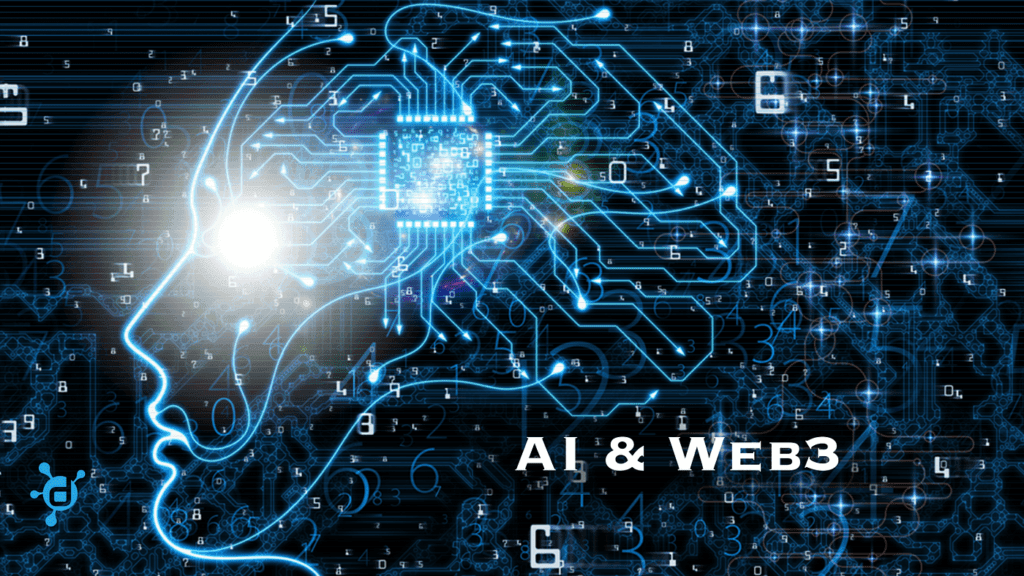

Introduction: Web3 Meets AI
Web3 is more than a buzzword; it’s the internet’s decentralized future where users have more control over their data and digital identities. But as exciting as Web3 is, it faces challenges like scalability, security, and user experience. Enter Artificial Intelligence (AI)—the game-changer that’s reshaping blockchain ecosystems and supercharging decentralized applications (dApps). AI and Web3 together are unlocking a world of possibilities, driving innovation, and addressing key hurdles.
1. Enhancing Blockchain Efficiency with AI
Blockchain networks are powerful but not always efficient. Transactions can be slow, and the computational cost is high. AI is helping streamline these processes in several ways:
- Optimized Consensus Mechanisms: AI models can analyze network activity to optimize consensus algorithms like Proof of Work (PoW) or Proof of Stake (PoS), reducing energy consumption and improving speed.
- Smart Contract Validation: AI ensures the accuracy and reliability of smart contracts by detecting vulnerabilities or bugs before deployment, boosting blockchain security.
- Fraud Detection: AI-powered tools analyze transaction patterns to flag suspicious activity, enhancing trust and security in blockchain networks.
2. AI-Powered Decentralized Applications (dApps)
dApps are at the heart of Web3, offering decentralized services like gaming, finance, and social networks. However, they often lack personalization and scalability. AI solves this by:
- Improving User Experiences: AI algorithms provide personalized recommendations in NFT marketplaces and DeFi platforms, making dApps more user-friendly.
- Advanced Analytics for DeFi: With AI, decentralized finance platforms can predict market trends and provide real-time risk assessments for better decision-making.
- Chatbots for dApps: AI-driven chatbots enhance user interaction, offering 24/7 support and simplifying complex blockchain processes.
3. Revolutionizing Data Management in Web3
Web3’s decentralized ethos means that users own their data. But managing this data efficiently and securely is a challenge. AI offers innovative solutions:
- Decentralized AI Models: These models process data locally, respecting user privacy while delivering powerful insights.
- Data Compression and Storage: AI algorithms optimize storage systems, reducing the cost of storing vast amounts of blockchain data.
- Interoperability Between Chains: AI can facilitate communication and data exchange between different blockchain networks, creating a more connected Web3 ecosystem.
4. Generative AI for Web3 Creativity
Web3 is not just about technology; it’s also about creativity, especially in areas like NFTs and the metaverse. AI is empowering creators with tools that:
- Generate Unique NFTs: Artists use generative AI to create stunning and one-of-a-kind digital art.
- Build Virtual Worlds: AI assists in designing immersive environments in the metaverse, enabling quicker and more complex development.
- Customizable Avatars: Users can create AI-generated avatars that adapt to their preferences in real time.
5. Overcoming Web3 Challenges with AI
Web3 adoption faces roadblocks like scalability and accessibility. AI plays a vital role in addressing these challenges:
- Scalability Solutions: AI algorithms predict network congestion and suggest load balancing techniques to ensure smooth operations.
- Accessibility for All: With natural language processing (NLP), AI simplifies blockchain interactions, allowing non-tech users to access Web3 services.
- Enhanced Security: AI-powered anomaly detection systems protect against cyberattacks, ensuring robust security for Web3 platforms.
Conclusion: AI and Web3—The Perfect Pair
The fusion of AI and Web3 is like a match made in tech heaven. Together, they’re creating a smarter, safer, and more inclusive internet. AI is not just optimizing blockchain operations but also empowering decentralized applications, fostering creativity, and making Web3 more accessible for everyone. As these technologies continue to evolve, the possibilities are endless. The future of the decentralized web looks brighter with AI at its core.
FAQs
1. How does AI improve blockchain scalability?
AI predicts network congestion and suggests load-balancing techniques, ensuring smoother and faster transactions. It also optimizes consensus algorithms, reducing resource consumption and enhancing speed.
2. Can AI help with the security of decentralized applications?
Yes! AI detects vulnerabilities in smart contracts, analyzes user behavior for fraud, and provides real-time alerts for suspicious activities, enhancing the overall security of dApps.
3. What role does AI play in the metaverse?
AI assists in building immersive environments, generating personalized avatars, and creating unique NFTs, enhancing the creative and interactive aspects of the metaverse.



